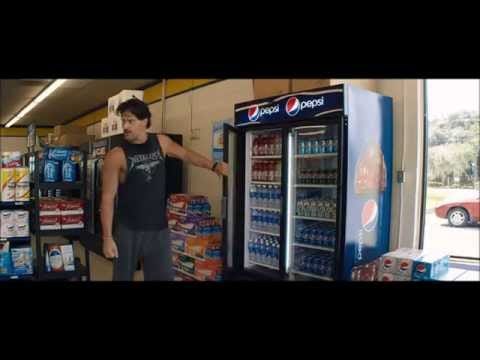The Fraiser reboot is so bad, it's elder abuse
For the love of all that is holy, enough with the reboots
Welcome to the always free, reader-supported weekend edition of The Experiment. If you’d like to support my work, there are links to do so at the bottom, or become you can become a paid subscriber.
We are a Frasier household. On the rare occasion when we’re between new episodes of one of our shows, there’s always Frasier and his brother Niles on Amazon Prime, Paramount+, and Hulu. A lot of the show has curdled — the constant slut shaming of Roz, for example — but the jokes still land, and the dialogue still dances to a crackling rhythm. Even with the loose-fitting ‘90s clothes and the lack of cellphones, Frasier doesn’t seem dated. There are homes where the television is tuned to Law & Order. Some people vibe on reality TV. Bless their souls, because in the Casa de Los Van Estanfornandos, we watch, and rewatch, Frasier.
But when I saw that Kelsey Grammer was rebooting Frasier, I had the same question Trent Crimm did in Ted Lasso’s first press conference: “Is this a f*%#ing joke?”
This is the era of IP TV.
Can we not get anything new around here? This is the era of IP TV. We are treated to rehashing Carrie Bradshaw’s love life and expansive iterations of what happened a long time ago in a galaxy far, far away. There are some great reboots that improve upon the originals, such as Prime’s Perry Mason and 2010’s Karate Kid, but for the love of all that is holy, have we completely run out of new ideas? For crying out loud, the Rolling Stones are touring again, Joe Biden (AKA that one guy from the ‘80s) is President, and his most likely Republican opponent is Donald Trump (AKA that other guy from the ‘80s). This endless recycling of old ideas has at least yielded one of my favorite shows from last year (Hulu’s Reboot, a satire of a rebooting sitcom), but could we please have something new? Please?
In the mid-weeker I linked to culture critic Jason Farago’s excellent lament in The New York Times Magazine where he makes a startling claim. It’s not just me, and it’s not just screens. The entire culture has “come to a standstill,” he writes, stating “ours is the least innovative century for the arts in 500 years.”
We are now almost a quarter of the way through what looks likely to go down in history as the least innovative, least transformative, least pioneering century for culture since the invention of the printing press. There is new content, of course, so much content, and there are new themes; there are new methods of production and distribution, more diverse creators and more global audiences; there is more singing in hip-hop and more sampling on pop tracks; there are TV detectives with smartphones and lovers facing rising seas. Twenty-three years in, though, shockingly few works of art in any medium — some albums, a handful of novels and artworks and barely any plays or poems — have been created that are unassimilable to the cultural and critical standards that audiences accepted in 1999. To pay attention to culture in 2023 is to be belted into some glacially slow Ferris wheel, cycling through remakes and pastiches with nowhere to go but around.
Farago blames (if that’s the right word) the lack of cultural “step changes” on the device you’re likely reading this on as well as our willing submission to algorithmic segregation. Our access to everything, everywhere, all at once has collapsed cultural time like a black hole. The great thing is we grab anything and make connections to anything in whatever form could exist. The bad thing is that it’s really hard to know which way is up.
“It’s still one Earth,” wrote novelist Stacey D’Erasmo in 2014, “but it is now subtended by a layer of highly elastic non-time, wild time, that is akin to a global collective unconscious wherein past, present and future occupy one unmediated plane.”
At its most superficial, this “unmediated plane” crashes in a storm of nostalgia. We think we’re getting a new chapter of the Star Wars saga, but the gun is still shaped like a planet, except this time it’s bigger. Frasier moves back to Boston, where — oh god, I can’t even bear to tell you how bad the new show is. We can take comfort from the reliable beats of a well-worn path, but as great as Chris Pine and Zachary Quinto are as Kirk and Spock in the Star Trek reboots, the only payoff is the dopamine rush of having your expectations met exactly as promised. There’s nothing new here.
Time collapsing upon itself not all bad. Last week S and I saw Janelle Monáe’s Dallas stop on her Age of Pleasure tour. Her first encore was “Make Me Feel,” a song Prince helped her with before his death (obviously). It’s impossible to hear the song and not hear Prince’s heavy synth.
But that’s now how she presented it. She came out in a replica of the black sequined suit Michael Jackson wore to perform “Billie Jean” on Motown 25: Yesterday, Today, Forever in May 1983. You remember that better when he did the moonwalk for the first time. I remember watching that show with my brother in the living room. Seeing Michael Jackson glide backwards seemed magical to me, though at 13 I was old enough to know there was no magic, only tricks.
A few years later I’d learn more about Jackson. Since those revelations, whether to listen to Michael Jackson’s songs has begged moral questions about whether it’s acceptable to bop along to a pedophile’s hit. Monáe reached through time and snatched that 40-year-old performance to combine it with a song her late mentor helped her with to create something akin to the Proustian moment in Ratatouille when Anton Ego remembers his mother’s cooking. All of a sudden, I was 53 going on 13, able to enjoy her love for Prince, her appreciation for Michael Jackson’s genius, and her joy of self-acceptance.
As Farago points out, this timeless moment focuses on who is telling the stories and about whom they are told, in other words, identity and representation. At its worst, this has yielded the female-led Ghostbusters reboot, which somehow rendered Kristen Wiig unfunny. At its best, this age where everything everywhere is possible all at once gives us Everything Everywhere All At Once, which accomplished the equally remarkable feat of getting Jamie Lee Curtis an Academy Award.
Perhaps I’m wrong about all this and can’t see progress that is underway. It’s harder to see a mountain, after all, when you’re climbing up it. “Memory, I think, is a substitute for the tail that we lost for good in the happy process of evolution,” wrote Jospeh Brodsky. “It directs our movements, including migration. Apart from that there is something clearly atavistic in the very process of recollection, if only because a process is never linear.” Maybe it’s always been like this, just without handheld devices connecting us to the sum total of all human knowledge, along with all the rest.
There was a good third act in the story of Frasier Crane. I know what it’s like to realize you’ve prioritized your career over your obligations as a father. What would it look like for Frasier to reckon with that? What if he faced his intellectual and emotional limitations instead of constantly stepping on the rakes?
But no. Instead of giving a great character the sendoff we deserve, we get banality ill-fitting this era of good television. At least David Hyde Pierce, who played his brother Niles, begged off. “David basically decided he wasn't really interested in repeating the performance of Niles,” said Grammer, who should have heeded his tag line and listened.
Here’s to new stories, someday, somewhere.
Jason Stanford is a co-author of NYT-best selling Forget the Alamo: The Rise and Fall of an American Myth. His bylines have appeared in the Washington Post, Time, and Texas Monthly, among others. Follow him on Threads at @jasonstanford, or email him at jason31170@gmail.com.
Further Reading
We set up a merch table in the back where you can get T-shirts, coffee mugs, and even tote bags now. Show the world that you’re part of The Experiment.
We’ve also got a tip jar, and I promise to waste every cent you give me on having fun, because writing this newsletter for you is how I have fun.
Buy the book Texas Lt. Gov. Dan Patrick banned from the Bullock Texas History Museum: Forget the Alamo: The Rise and Fall of the American Myth by Bryan Burrough, Chris Tomlinson, and myself is out from Penguin Random House. The New York Times bestseller is 44% off and the same price as a paperback now!








I saw the Fraiser Reboot and thought basically the same thing. I didn't have much of a hopeful feeling about it. It's good to know how you feel about it, because it confirms my own suspicions. Not going there. LOL...
100%. Also, Star Trek: Strange New Worlds manages to be fresh and new, with a wink and a nod to the source. Most sequels, prequels and do-overs are not as clever. It doesn't matter though, because when AI starts writing everything, we can look forward to an infinite stream of recycled reboots disguised as new content.